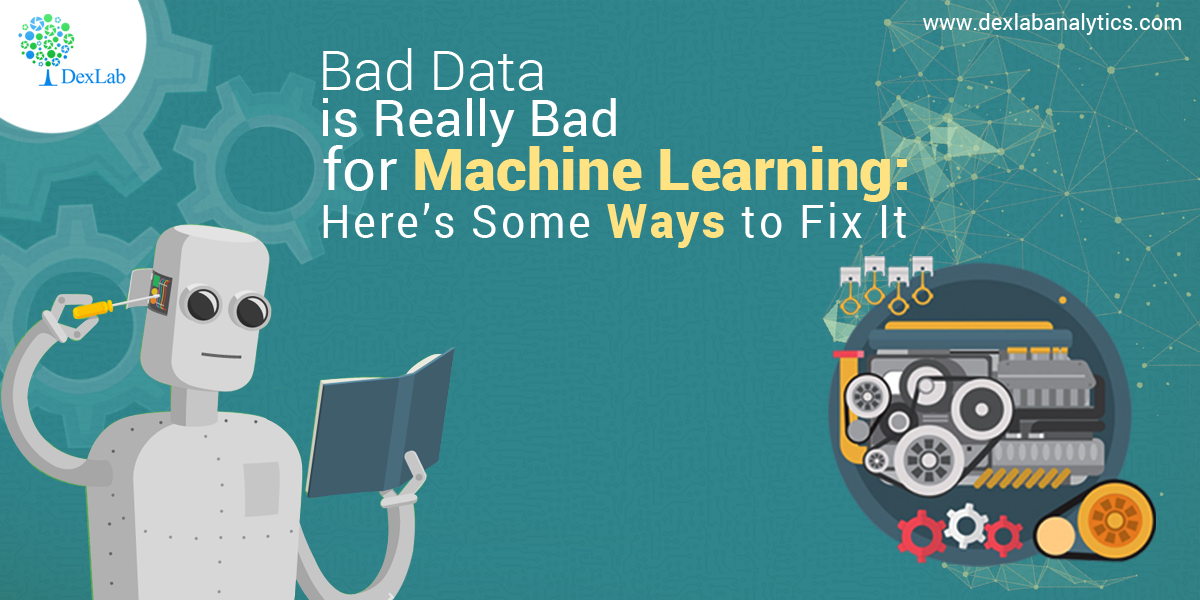The quality of data is the talisman of decision-making. Irrespective of the goals, the key to better decision-making lies in the quality of data. As it’s said, bad data takes its toll on organization’s data endeavors – as a result, only 25% of businesses are able to optimize the use of data for revenue generation, despite a volley of resources being thrown at them.
IBM has reckoned that bad data costs companies some $3.1 billion a year in the US alone, while as per Experian’s Data Quality survey, 83% of organizations alleged their revenue is affected by imprecise and incomplete customer or prospect data.
The muddle of bad data is going to spike up even more as machine learning adoption is making things more data-dependent. Cutting edge machine learning algorithms are relying on data to command them. In fact, if you take a closer look, you’ll find that most of the data scientists consider data more important than the algorithms themselves, because they know without data the algorithms will be left completely defenseless.
Learn and excel in machine learning using Python with DexLab Analytics. They are the torchbearers of data analytics training in India, come peruse through their courses.
Jérôme Selles, Director of Data Science & Analytics at Turo, said in this context, ‘Depending on the quality of the data that is being used, automating the learning loop can be a challenge and, today, requires manual supervision. A good illustration of that is what happened with the Microsoft Chatbot Tay that became racist within 24 hours. For Machine Learning to achieve its own potential, the learning process needs to be kept under control, and values need to be respected. Data quality of the models is as important as education values in our society and we need more automated and systematic ways to make this happen.’
It is being said, as much as 70% of data sets are flawed. Our lives are constantly evolving – from switching jobs to locations to homes, the list is almost endless, and so is the generation of data. As a result, the quality of data starts degenerating, and a majority of organizations struggle to deal with this concern. Though there may be a variety of reasons for such discrepancies in data accumulation, there are also a lot of things you can do to tackle the challenging issue of bad data.
First of all, the companies need to constructively introduce a culture of adversarial testing, auditing and learning into the developmental approach. This would be done solely to accept the biases of the data sets involved to deal with productive analytic approaches. But of course, the more difficult part is to get rid of degrading data – it is time-consuming, expensive and calls for a lot of dedication and efforts.
Secondly, the data-assessment should be performed frequently. Any sort of assessment will help find what data needs to be cleaned and which is to maintain, but it is thoughtfully advisable to opt for diligent data scientists who knows their way around. For that, DexLab Analytics’ data science courses online are a sheer delight. They are intensive, well-researched and student-friendly – go check out their online data science certification itinerary now!
Interested in a career in Data Analyst?
To learn more about Data Analyst with Advanced excel course – Enrol Now.
To learn more about Data Analyst with R Course – Enrol Now.
To learn more about Big Data Course – Enrol Now.To learn more about Machine Learning Using Python and Spark – Enrol Now.
To learn more about Data Analyst with SAS Course – Enrol Now.
To learn more about Data Analyst with Apache Spark Course – Enrol Now.
To learn more about Data Analyst with Market Risk Analytics and Modelling Course – Enrol Now.


Comments are closed here.